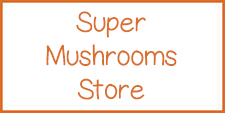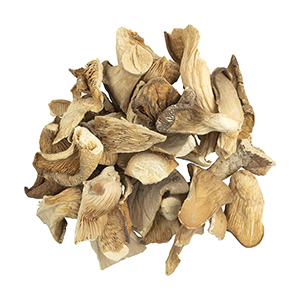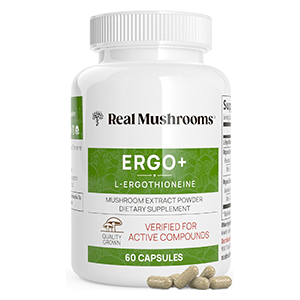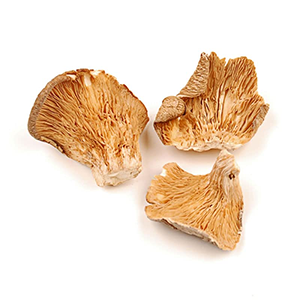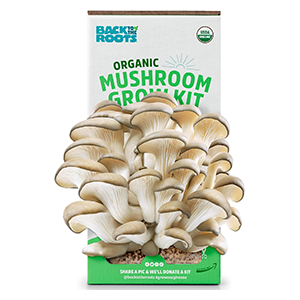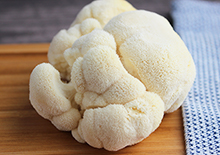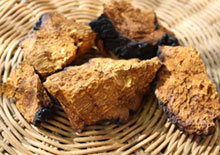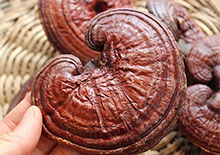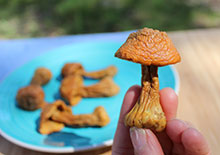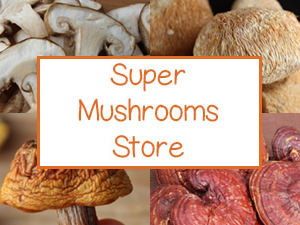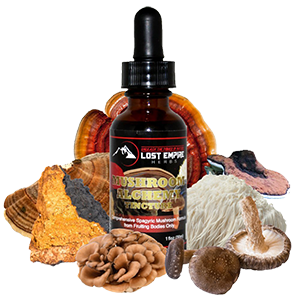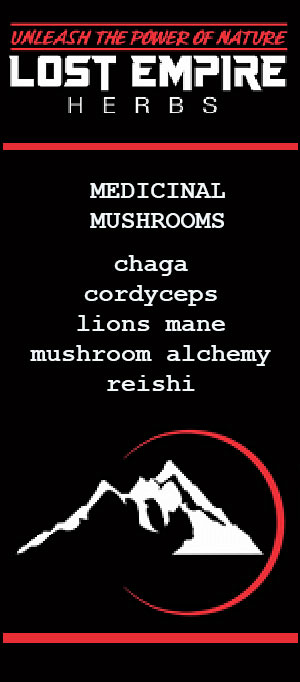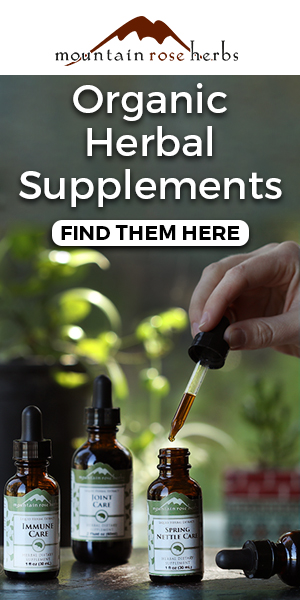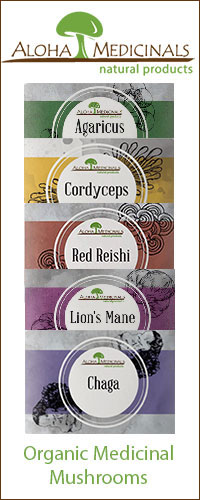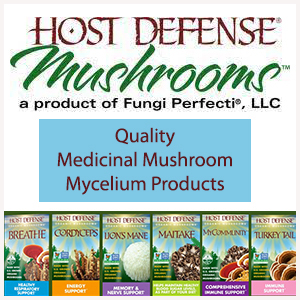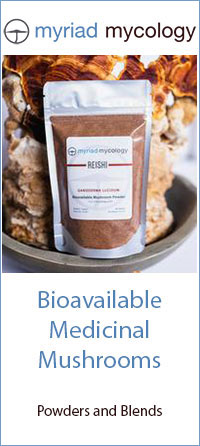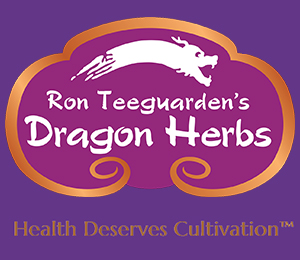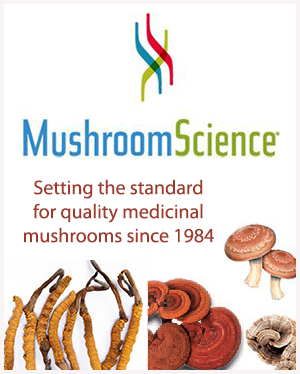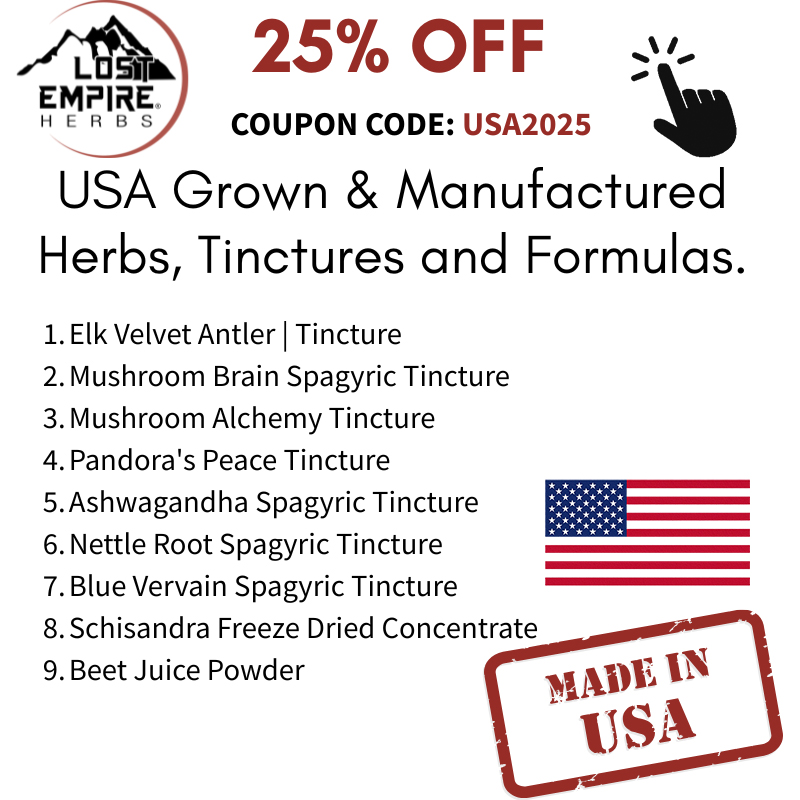- Home
- Super Mushrooms
- What are Oyster Mushrooms?
What are Oyster Mushrooms? Benefits and Nutrition Facts
Intro | Types | Taste | Culinary Use | Benefits | How to Use | Precautions | Shop
What are oyster mushrooms?
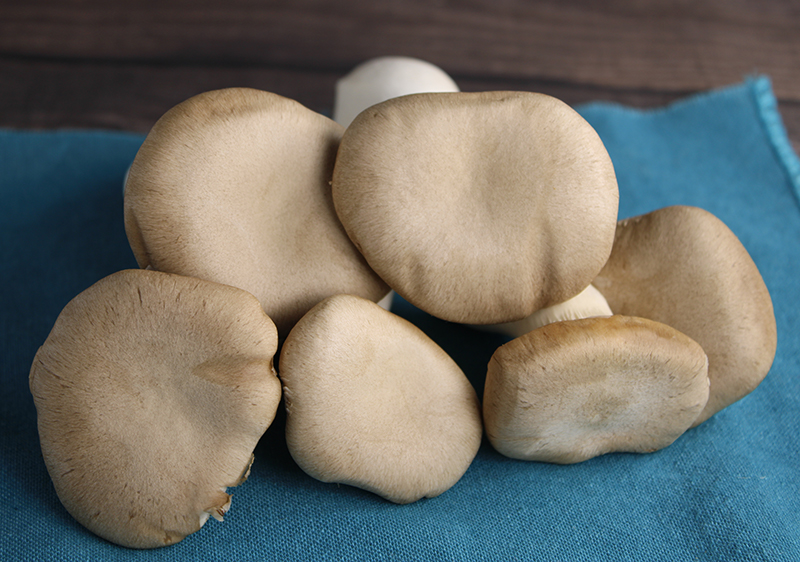
Oyster mushroom is a type of medicinal fungi that grows naturally on deciduous trees all over the planet.
Unlike other varieties, like shiitake or maitake, which have been grown for many centuries, the oyster is a fairly new cultivated favorite with many qualities to admire.
Called "oyster" mushroom, not because they taste like oysters but because of the curved, sometimes wavy, oyster-like shape of the cap itself.
They are quickly becoming one of the most commercially available mushroom staples next to the standard white button or other Agaricus bisporus species, like portobello and cremini.
Types of Oyster Mushroom
Table of Contents
Intro | Types | Taste | Culinary Use | Benefits | How to Use | Precautions | Shop
There are many different cultivars of the oyster mushroom all coming from the common edible Pleurotus ostreatus. This includes pearl oyster, blue oyster, pink oyster, golden oyster just to name a few.
They are prolific when cultivated with many varieties producing a layered appearance which has made them especially favorable for larger scale commercial cultivation.
There is also the king oyster mushroom (also called king trumpet), Pleurotus eryngii, a well-known culinary favorite recognizable by its single meaty white stem. It is the largest in the oyster fungi realm.
What Do They Taste Like?
While the raw mushroom with its neutral flavor is edible, it isn't usually consumed this way.
Oyster mushroom needs to be cooked to release its subtle umami-ness and develop a pleasant meat-like texture.
Cultural Culinary Uses
Being especially popular where the mushrooms grow wild, it has been a long-time choice
delicacy
in Korean, Chinese and Japanese cuisine.
Similar to dried shiitake, dried oyster mushroom is known to concentrate more umami flavor when reconstituted and heated. Therefore, dried mushrooms are often preferred when making dashi broth due to their increased savory umami flavor.
Also unique to Apulian cooking in the traditions of Apulia (Puglia), Italy (the heel of Italy's boot-like shape), fresh king oyster aka "cardoncelli" is frequently sautéed w/ garlic and consumed alone or atop pasta dishes.
The mushroom is both tasty as well as nutritious. Here are the many benefits of oyster mushrooms you might want to contemplate.
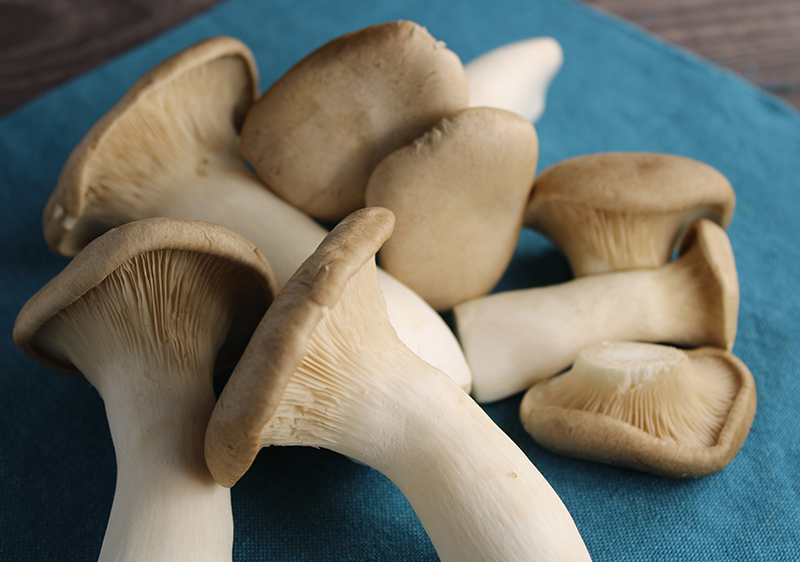
Benefits of Oyster Mushroom
Source of Beta-Glucan Pleuran
There are other reasons you may wish to heat your mushrooms via steaming, sautéing or simmering methods. Not only to enhance their favorable taste qualities but this process also helps to release certain myco-nutrients and polysaccharides.
One of the major compounds in oyster mushroom is the beta-glucan known as PLEURAN. Pleuran offers immune-supporting properties rendering a protective influence on those who consume it.
In some research, pleuran's immunomodulatory effect has been identified as useful for respiratory infections in both children and athletes.
Highly structured beta-glucans are what many of the medicinal mushrooms are known for. Yes, species like chaga, turkey tail or reishi, are more therapeutically potent, but oyster can be more suitable for everyday culinary uses and definitely a worthy replacement for white button agaricus types.
Using the mushrooms in liquid broths or a miso soup are the most ideal for the highest concentration of these nutritive elements.
Dietary intake of β-glucan-rich mushrooms like Pleurotus ostreatus are often considered helpful for in a cholesterol-lowering dietary protocol.
In one study on rats, CHRYSIN was likewise found to be a major constituent that may offer protection against hypercholesterolemia or high cholesterol.

Antioxidants: Ergothioneine and Phenols
Pleurotus mushroom species are studied for their high concentration of ERGOTHIONEINE (ERGO) and is in fact one of the highest of any known food source.
Sometimes referred to as the "longevity vitamin" for its potential to enhance long-term health, ergothioneine is a natural dietary amino acid and antioxidative anti-inflammatory nutraceutical.
Including the oyster mushroom variety on your list of mushroom options can provide more of this useful nutrient.
In addition, some antioxidant phenols such as gallic acid have been observed in the oyster mushroom variety.
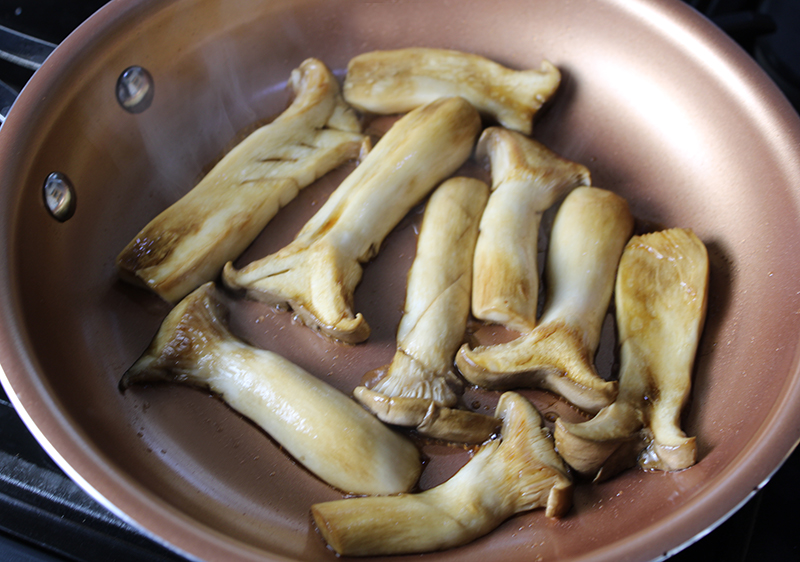
Protein Content
Culinary mushrooms like oyster do contain some protein. One cup of raw sliced oyster mushroom can have about 2.9 grams of
PROTEIN or 6% the Recommended Daily Value (based on an adult 2000
calorie diet).
Depending on species type and substrate it's grown on, most contain non-essential amino acids but may also contain some essentials like threonine, tryptophan, valine, lysine, leucine and histidine.
When scored, marinated, sautéed or grilled, species like the king oyster provide a sizeable savory meaty texture to accompany meals as a protein alternative.
Because of its recent increased availability, it is fast becoming a favored fungi among vegetarians, vegans or those trying to consume less animal-based foods.
High in Vitamin D
Mushrooms get vitamin D the same way that humans do by taking in ultraviolet sunlight. They are therefore on the list of vitamin D-rich foods, predominantly VITAMIN D2 which is converted from ergosterols.
This is especially the case for quality cultivated varieties that are exposed to natural sunlight or ultraviolet light. (*) The mushroom gills pull in the highest vitamin D2 when exposed to artificial UV light or are sun-dried face-up. Dried oyster mushrooms using either of these methods can be especially concentrated.
This form of Vitamin D, also called ergocalciferol, can be a beneficial nutrient to round out the diet along with safe amounts of regular sunlight exposure on the skin.
Source of Niacin and Other Nutrients
One cup of raw sliced oyster mushrooms contains about 4.3 milligrams of the B3 vitamin known as NIACIN, about 27% the Recommended Daily Value. Niacin is a key nutrient important for things like circulation, metabolism and DNA repair.
Oyster mushrooms are likewise full of FIBER and can contain higher amounts of various minerals like copper, potassium, phosphorus, magnesium and iron.
These varieties are also known for their ability to uptake selenium as well as bioaccumulate lithium, depending on the substrate grown on. (*)
Cost-Effective Staple
Oyster mushrooms are one of the most inexpensive of the functional mushroom types. The dried variety can offer a cost-effective storage-staple great to have on hand in your bulk food pantry.
While the price per pound might initially seem a bit high, note that when mushrooms are dried, they are very lightweight. So, one pound of dried oyster is a good-size amount. After soaked and reconstituted, you’ll be getting your money's worth.
Can Grow Your Own
One of the great benefits of the Pleurotus ostreatus species is that they are one of the easier fungi to grow yourself from purchased plug spawn or a cultivation kit.
Usually popping up in layered clusters, they are a very prolific and can supply a plentiful harvest.
Shown to Convert Pollutants
"Mycoremediation" or the science of using fungi to convert waste materials offers hope for addressing environmental contamination.
According to research, oyster mushrooms have been utilized industrially for cleaning up soil pollutants like diesel oil, converting most of it into non-toxic compounds.
How to Use
Oyster mushrooms can be prepared like other culinary fungi through the process of sautéing, grilling, steaming, etc.
When sliced and scored, oyster is like a sponge taking on any seasonings it's marinated in.
They are a pleasing addition to many recipes in which mushrooms are typically utilized or can be used as a mushroom-based protein addition to meals.
Precautions:
Generally, oyster mushrooms are considered a safe food to consume on a regular basis unless you have mushroom allergies. Consult a healthcare professional before adding them to the diet, especially if you are pregnant, nursing, have a serious medical condition or are taking any medications.
Shop Related Products (About Affiliates & Amazon Associate Paid Links)
Affiliate Disclaimer: This section contains affiliate product links. If you make a purchase through our recommended links, we receive a small commission at no additional cost to you. Thanks for the support.
